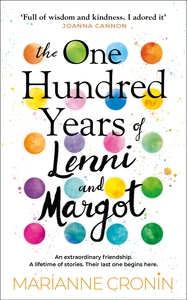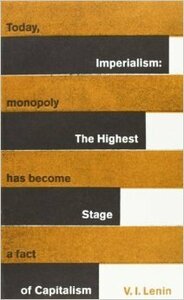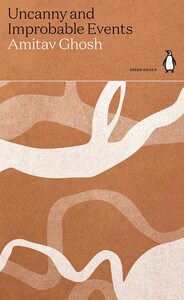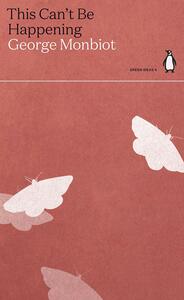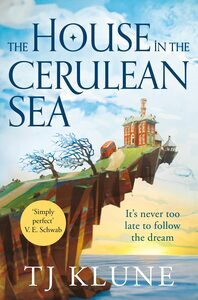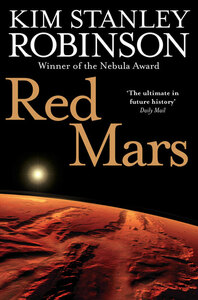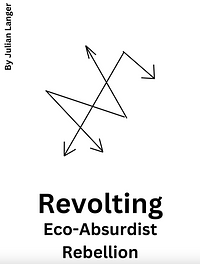Take a photo of a barcode or cover
mars2k's Reviews (234)
Half-Earth Socialism: A Plan to Save the Future from Extinction, Climate Change and Pandemics
Drew Pendergrass, Troy Vettese
hopeful
informative
inspiring
medium-paced
That nature is ultimately unknowable does not mean we should not try to understand as much as we can about our beautiful, bewildering world.
An ode to utopianism which feels lacking in the theory department. Very cursory. Analysis is broad rather than deep, flitting between a variety of topics which are interesting, sure, but don’t necessarily bolster an understanding of the book’s central premise. I haven’t read the book which inspired this one (Half-Earth by Edward O Wilson), but the crux appears to be a pivot to veganism and subsequent rewilding of land previously used for rearing livestock – a big ask, but reasonably sound as a means to tackle climate change and biodiversity loss. Vettesse and Pendergrass append Socialism to this theory mainly for the sake of logistics (a project on a planetary scale requires centralised planning, they argue).
Maybe I should reserve my judgement of Half-Earth theory until I read Wilson’s work on the subject but I do want to push back on this call to separate and segregate humanity and the natural world. The more I learn about ecology the more I realise “nature” is a construct with little merit; there is no such thing as nature and yet nature is everywhere, all around us, and we are part of it. But maybe such philosophising doesn’t belong in this review.
Half-Earth Socialism offered some food for thought and has certainly contributed to my ongoing research into and reflections on ecological matters. I just don’t think it makes its case (either for Half-Earth or for socialism) as effectively as it could have done.
dark
emotional
reflective
sad
medium-paced
Read for book club August 2025
informative
slow-paced
I wasn’t intending to read this book but it came up in conversation with a friend and the next thing I knew I’d agreed to read it. So here we are.
I found it pretty dry, and less engaging than The State and Revolution. Lenin grapples with the emergence of monopolies and the transition from industrial capital into finance capital through the close cooperation of banks and industrial cartels. At first he seemed to be using imperialism as an analogy (capitalist enterprises conquer economic territory, in essence), but this later developed into an assertion that monopolistic capitalism and imperialism are one and the same. I’m not entirely convinced by this argument but I do recognise that capitalism, being driven by exploitation and expansionism (and driving further exploitation and expansionism in turn), naturally tends towards imperialism. There is a clear incentive to lay claim not only to resources and labour but also to potential markets.
I really did get the impression that Lenin wanted to write about the changing character of capitalism and only added the imperialism framing later, perhaps in a deliberate attempt to fold emerging anti-colonial movements into the Marxist struggle. I can’t say for sure. It just seems strange for a book titled Imperialism to have so much to say about bank deposits in Germany and so little to say about racism, myths of manifest destiny, etc. Even the statistics on colonial territories don’t reflect the experiences – the actual material conditions – of people living in those territories; they’re just statistics. Also of note are Lenin’s attempts to pin imperialism solely on capitalism (and to conflate the two). I despise capitalism as much as the next prole but I think it would be naive to genuinely consider it the root of all evils, and I find it a little suspicious considering Lenin’s advocacy for a socialist state. Of course he wants us to think the state is a fundamentally good structure and it’s only the corrupting influence of capital which brings about injustice.
In all, this book felt lacking. Some good observations here and there but not enough to warrant recommendation. It seems I don’t get on with Lenin. I wouldn’t want to play Monopoly with him.
reflective
slow-paced
Vague ramblings. Relies on jargon without actually having much to say. Has the air of being written by a student grasping at straws because the assignment is due and he hasn’t done the reading. But he’s a pretentious student who thinks he’s not like other ecologists because he’s read Spinoza.
I had heard of deep ecology and was curious to find out more about it. It seems to revolve around a sort of spiritual belief that all life has inherent value; this forms the basis for the standpoint that nature should not be preserved (solely) for human benefit and that humans should only destroy/exploit nature when necessary (ie: to satisfy needs, not wants). There’s also a worrying point about the supposed need to drastically reduce the human population. I am not reassured by claims that it would be a gradual process brought about by “mild but tenacious political and economic measures.” This seems more misanthropic than nonanthropocentric, and dangerously appealing to those interested in implementing genocidal and eugenicist projects. I don’t know at this point whether population reduction is something common (or even foundational) to deep ecology or if it’s just Næss’s own position.
It took me five days to read this 100 page book and it was a slog from start to finish. I feel like I didn’t gain much from it.
I had heard of deep ecology and was curious to find out more about it. It seems to revolve around a sort of spiritual belief that all life has inherent value; this forms the basis for the standpoint that nature should not be preserved (solely) for human benefit and that humans should only destroy/exploit nature when necessary (ie: to satisfy needs, not wants). There’s also a worrying point about the supposed need to drastically reduce the human population. I am not reassured by claims that it would be a gradual process brought about by “mild but tenacious political and economic measures.” This seems more misanthropic than nonanthropocentric, and dangerously appealing to those interested in implementing genocidal and eugenicist projects. I don’t know at this point whether population reduction is something common (or even foundational) to deep ecology or if it’s just Næss’s own position.
It took me five days to read this 100 page book and it was a slog from start to finish. I feel like I didn’t gain much from it.
hopeful
informative
inspiring
medium-paced
Imperative. Berry describes the disconnect between food production and consumption, and between nature and the modern world. He urges us all to take responsibility; this means firstly acknowledging our participation in systems ecological and industrial, then taking action to radically alter the systems we are a part of rather than hoping others will take the actions we call for. In some ways I took issue with this framing; for example, the idea that turning off lights and not wasting water at home will have any real impact on climate change. It’s a very retro form of environmental activism which seems obsolete/insufficient when states and corporations pollute the land, sea, and sky to the degree they do. But the underlying argument – that we as individuals need to put the work in and change our behaviour instead of relying on the rich and powerful to do the right thing when they have little incentive to do so – is sound. Maybe my impulse to reject this call to action is a sign I’m shirking responsibility and denying my own role in the systems I (claim to) oppose.
The final essay in this small collection (titled “The Total Economy”) favours local initiatives over global markets, noting the importance of neighbourhood and subsistence. Though he didn’t use these exact words, it brought to mind the adage “never buy what you can make yourself” (cousin to the “make do and mend” ethos). I keep telling myself I want to live by these principles – this book has encouraged me to actually work towards this.
Money does not bring forth food. Neither does the technology of the food system. Food comes from nature and from the work of people. If the supply of food is to be continuous for a long time, then people must work in harmony with nature.
We should not envy rich movements that are organized and led by an alternative bureaucracy living on problems it is supposed to solve. We want a movement that is a movement because it is advanced by all its members in their daily lives.
Even now, after centuries of reductionist propaganda, the world is still intricate and vast, as dark as it is light, a place of mystery, where we cannot do one thing without doing many things, or put two things together without putting many things together.
informative
inspiring
reflective
medium-paced
An excerpt from The Great Derangement which I will have to read in full some day. If I had known this was only an excerpt, I probably would have sought out the original instead of buying this book.
Other than that minor irritation, I liked it. Ghosh explores climate change narratives and the lack of fiction dealing with the topic, considering how white bourgeois tastes have shaped the modern novel and its permutations (genres) in contrast to other forms of storytelling. It meandered but it made sense for it to do so. Got me thinking about the spectacle and the exotic, and, of course, the uncanny.
fast-paced
Brief essays and speeches. A chunk of this collection is focused on economics rather than ecology; you can see Monbiot was having a moment in 2019, coming to terms with the idea that capitalism might not be good actually and struggling to find a satisfactory alternative. This snapshot of his political development reveals some bumps in the road (does wealth really suppress empathy or do you have to be unempathetic in the first place in order to amass wealth?); it’s like he’s halfway there, which is frustrating because I was hoping to gain some new insight and it feels like I’m more clued up than he is.
Still, the way Monbiot had to confront and unlearn assumptions about the world such as his taking capitalism for granted reflects the idea that we disregard what we don’t want to grapple with. As he stated early on in this book, “even those of us who engage with this crisis simultaneously know and shrink from knowing.” I would have liked more writing on climate denial and ignorance beyond accusations of some kind of conspiracy carried out by The Media™
This book was a bit too basic for me. It is short and easily digestible though, so maybe it’d be a good jumping-off point for someone new to anticapitalism and environmentalism?
medium-paced
Read for book club July 2025
Not to my taste at all; I don’t like fluffy escapism or sappy romance. I knew going in that it was probably not for me but I hoped I’d get some enjoyment out of it. I didn’t particularly.
To me, The House In the Cerulean Sea read like a children’s book. Very simplistic, very predictable, very on-the-nose in its messaging – condescendingly so – and the twee Briticisms didn’t help. The whole book felt very tryhard in its wholesomeness. Maybe this speaks to my own disposition more than anything, but I kept waiting for the other shoe to drop and for the sinister undertones to rise to the surface. For example, when Linus received that letter warning him not to be won over by Arthur’s charms, I thought yes! Arthur is manipulating him! He’s suave and affectionate when he needs to be, but there are moments of meanness from him, like whenever the subject of Linus leaving the island comes up. Red flags. But nothing came of that so I don’t think I was supposed to see it that way.
I have to say I was a little put off by the author using Sixties Scoop as direct inspiration for this feelgood romance; why appropriate that (but make it fantastical to mask the appropriation) when themes of ostracisation and learning to embrace difference are already commonplace in fantasy? It felt unnecessary. And am I the only one who thought the pseudo-progressive message was undercut slightly by the characters gleefully dressing up as colonisers and telling tales of spear-wielding cannibals?
Not a fan of the idea that becoming a better person = becoming a parent either, but that’s a whole other can of worms.
The other members of my book club adored this book. I thought it was cringe-inducing and grim. I feel insane.
adventurous
challenging
dark
reflective
slow-paced
A very strong start; compelling prose and good character studies. The shifting POV and clear differences in perspective between characters kept things fresh, and complemented a developing theme of observation and perception being at odds with experience and interaction. It’s a thought-provoking book. There are the scientific and technological aspects typical of hard sci-fi, but also a lot of philosophising as characters try to make sense of their new world and put forward their own beliefs about what a Martian society should or could possibly look like. Take this quote about the concept of nature:
“Both sides say they are in favor of nature, of course. One has to say this. The reds [those who want to preserve Mars] say that the Mars that is already here is nature. But it is not nature, because it is dead. It is only rock. The greens [those who are in favour of terraforming Mars] tell this, and say they will bring nature to Mars with their terraforming. But that is not nature either, that is only culture. A garden, you know. An artwork. So neither way gets nature. There isn’t such a thing as nature possible on Mars.”
But ultimately it seemed like the themes and ideas being toyed with were discarded in favour of a basic nationalist narrative; “transnat” corporations vs a burgeoning Martian identity, their incompatibility largely taken as a given and not explored with the depth that might be expected. Maybe that’s deliberate? Maybe philosophical debates about nature and beauty and spirituality are frivolous, and unimportant in the face of material reality and hegemonic power. Yet so much of that philosophising is wrapped up in the material conditions of establishing a colony on Mars and political implications of doing so.
I will read the rest of the trilogy (eventually) but for now I have only Red Mars to evaluate and I really don’t know what to make of it. I liked it. I loved parts of it. John’s section dragged on far too long (again, deliberate? His directionless rambling really was a waste of time.) The momentum was lost and was never really recovered, even with one cataclysm after another taking place. The latter half of the book is pretty bleak. Some of the more interesting characters were sidelined or removed from the narrative. In the end it felt like setup for the next book, irritatingly, rather than a story which stands up on its own.
Anyway...
Shikata ga nai
fast-paced
Transcendence and negation. Neither of these answers are my answers. They are both revolting. I feel revolted and rebellious towards the revolutionary and communist causes. I am revolted. I am revolting.
Tar pit approach to political critique, and not much offered in the way of alternatives. Feed pigeons I guess idk. Resembles a caricature of anarchism (contrary, shallow) with little substance, misrepresenting philosophical concepts/theories (Camus’s absurdism being the most prominent example of this).

